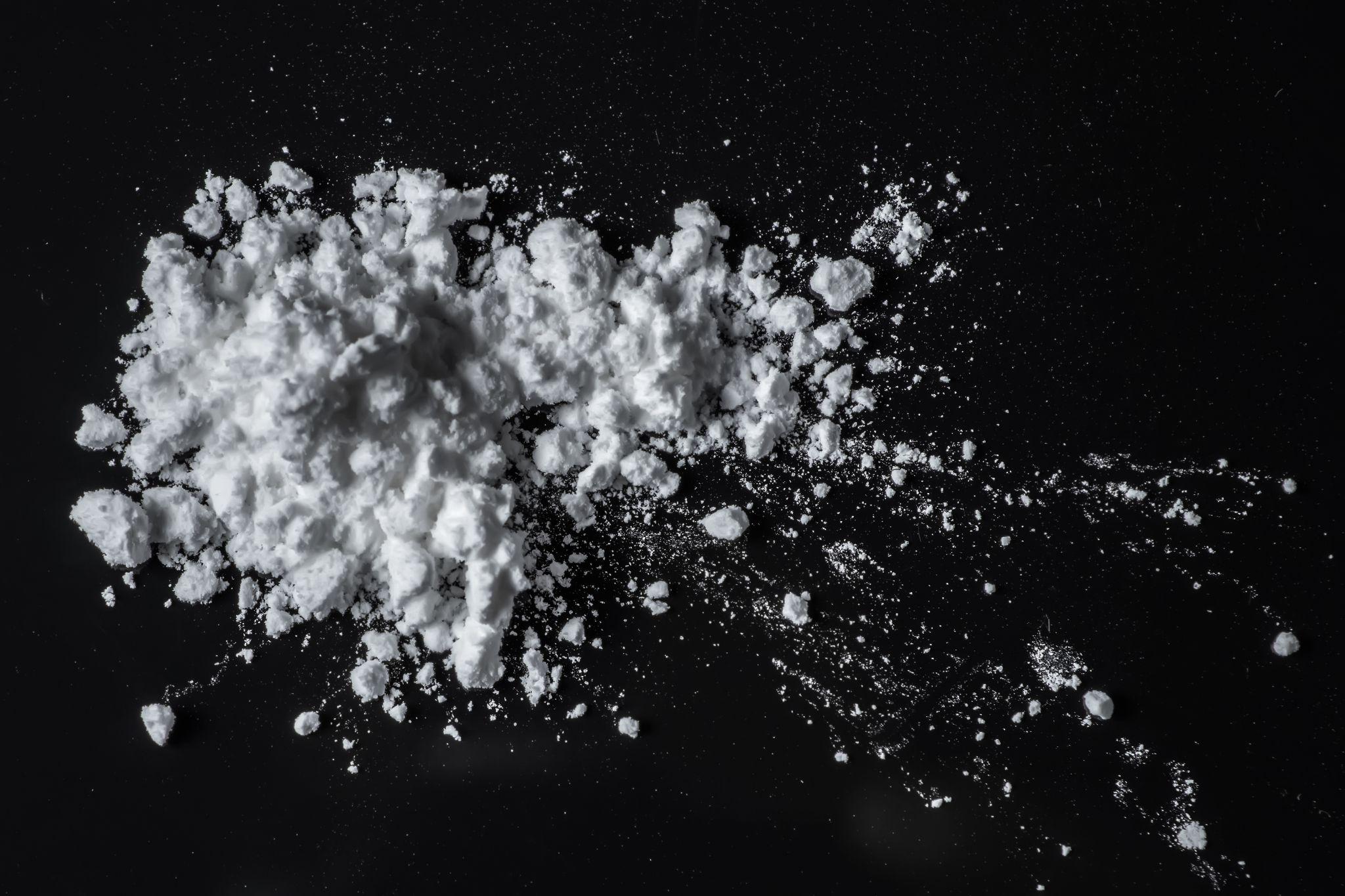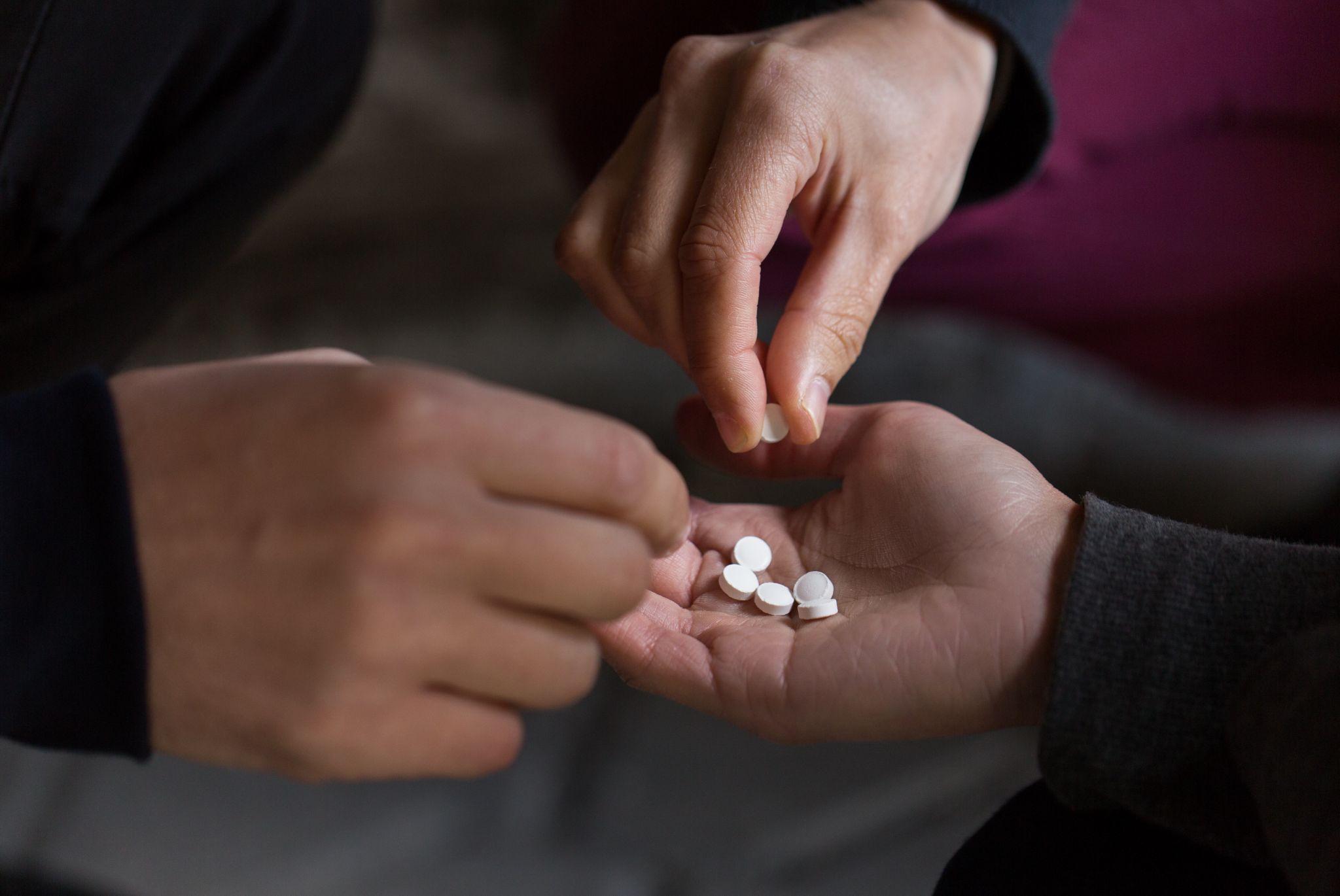
Our Addiction Resources
Navigating the world of addiction and recovery can be overwhelming. We’re here to provide clear, compassionate education and guidance. From practical advice for maintaining sobriety to informational guidance on the long-term effects of substance abuse, our content is a beacon of hope and understanding.
Our Team is Ready are ready to take your call
Call us Today!
or we can call you. Fill out form below
Our Blog

NBOMe Addiction: Facts and Risks
NBOMe is a dangerous synthetic designer drug that has become a growing concern in recent years. Known for its potent hallucinogenic effects, NBOMe has been linked to numerous hospitalizations and deaths. Understanding the risks associated with NBOMe is crucial for those struggling with addiction and their loved ones.
What Is NBOMe?
NBOMe, short for N-methoxybenzyl, is a family of synthetic hallucinogens first synthesized in 2003 by Ralf Heim at the Free University of Berlin. Initially, these compounds were researched for their potential medical uses. However, it wasn’t long before they found their way into the recreational drug market.1
The NBOMe series includes various compounds, such as 25I-NBOMe, 25C-NBOMe, and 25B-NBOMe. Each variant has a slightly different chemical structure, but all produce similar hallucinogenic effects. Despite these molecular differences, NBOMe compounds are significantly more potent than many other hallucinogens, such as LSD or psilocybin.2
NBOMe drugs are typically sold in the form of blotter paper, powder, or liquid. The blotter paper form is often mistaken for LSD because it looks nearly identical. However, NBOMe compounds are much stronger, and their effects can be unpredictable and dangerous.3
NBOMe Drugs and Their Effects
The effects of NBOMe can vary widely depending on the dosage and individual sensitivity. The drug acts on the serotonin receptors in the brain, particularly the 5-HT2A receptor, which is responsible for the hallucinogenic effects. While some users may experience a euphoric and visually stimulating trip, others may encounter severe and frightening hallucinations.2
Common effects of the NBOMe drug include:3
- Visual and Auditory Hallucinations: Users often report seeing vivid colors, patterns, and shapes that aren’t really there. Sounds may also become distorted or amplified.
- Euphoria: A feeling of intense happiness and well-being is common, but this can quickly turn into anxiety or paranoia if the trip takes a negative turn.
- Altered Perception of Time and Space: Time may seem to speed up or slow down, and distances can appear distorted. This can make navigating physical spaces difficult and dangerous.
- Physical Symptoms: These can include increased heart rate, high blood pressure, nausea, and tremors. In severe cases, users may experience seizures or loss of consciousness.
- Psychological Effects: Anxiety, paranoia, and psychosis are not uncommon, especially at higher doses. Some users report feeling like they are losing their minds or experiencing an out-of-body sensation.
- Dangerous Behaviors: Under the influence of NBOMe, individuals might engage in risky or harmful activities due to their altered state of mind.
The unpredictability of NBOMe effects makes it particularly hazardous. Unlike some other hallucinogens that have more predictable outcomes, the reaction to NBOMe can vary greatly from person to person and even from one use to the next. This variability increases the risk of a bad trip or adverse reaction, which can be traumatic and have long-lasting psychological impacts.
Overdose Potential of NBOMe
One of the most alarming aspects of NBOMe is its high overdose potential. The difference between a recreational dose and a dangerous dose is very small, making it easy to accidentally consume a lethal amount. Overdose symptoms can escalate quickly, resulting in severe medical emergencies.
Overdose symptoms include:3
- Extreme Agitation: Intense restlessness and irritability can lead to aggressive or violent behavior, posing a danger to the user and others.
- Hyperthermia: NBOMe can cause dangerously high body temperatures, leading to heatstroke, organ failure, and death if not treated promptly.
- Respiratory Distress: Difficulty breathing or complete respiratory failure can occur, necessitating immediate medical intervention.
- Cardiac Arrest: The drug can cause heart palpitations, arrhythmias, and sudden cardiac arrest, which can be fatal without emergency care.
- Seizures: Severe and uncontrollable seizures may result from high doses, leading to brain damage or death.
Overdoses have led to numerous NBOMe deaths worldwide, highlighting the critical need for awareness and caution. The potency and unpredictability of NBOMe make it incredibly easy to overdose, often with fatal consequences.
NBOMe Street Names
NBOMe is often sold under various street names, which can make it difficult to identify. Some common street names include:3
N-Bomb: This name reflects the drug’s powerful and explosive effects.
Smiles: The name can be misleading, as it suggests a pleasant experience, which is not always the case.
25I, 25C, 25B: These alphanumeric codes refer to specific NBOMe compounds, with each variant having slightly different effects.
Legal Acid: This name is used to imply that NBOMe is a legal alternative to LSD, although it is illegal in many places.
Wizard: Another name that suggests mystical or magical experiences, often used to attract users seeking a unique trip.
Getting Help for NBOMe Addiction

If you or a loved one is struggling with NBOMe addiction, it is essential to seek professional help. Addiction to NBOMe can be challenging to overcome due to its potent effects and the psychological dependence it can create. Take these steps if you find yourself struggling:
- Reach out to a professional. Contact a healthcare provider, addiction specialist, or a reputable rehab center. They can assess the situation and recommend the best course of action.
- Get detoxification support. Medically assisted detox programs can help manage withdrawal symptoms and ensure a safe detox process.
- Go to counseling and therapy. Behavioral therapies, such as cognitive behavioral therapy (CBT) and dialectical behavior therapy (DBT), can help address the psychological aspects of addiction.
- Join a support group. Joining support groups, such as Narcotics Anonymous (NA), can provide communities of individuals who understand the struggles of addiction and can offer encouragement and advice.
- Enroll in aftercare programs. Long-term recovery often requires ongoing support. Aftercare programs can help individuals stay on track and avoid relapse.
Need Support for NBOMe Addiction? Lumina Recovery Is Here
NBOMe is a highly dangerous drug with severe physical and psychological risks. Understanding what NBOMe is, recognizing its effects, and knowing the dangers of overdose are crucial steps in preventing and addressing addiction.
Lumina Recovery provides various therapy modalities including individual therapy and medication-assisted therapy to support a holistic approach to addiction treatment. Recovery is possible, and taking the first step can save lives.
If you or someone you know is using NBOMe, don’t hesitate to seek help from our addiction treatment specialists.
Sources:

Sharing Your Recovery Story
Recovering from addiction is a profound and personal journey. As you work through this transformative process, you might consider sharing your story with others. Doing so can be a powerful way to connect with others, inspire hope, and contribute to the broader conversation about addiction recovery and addiction recovery stories.
How to Share Your Recovery Story
Sharing your recovery story can be a meaningful way to express your journey and provide support to others. Here’s how to tell your recovery story effectively and share your journey with impact:
Be honest and authentic. Your story is unique to you, and its authenticity is what makes it powerful. Speak from the heart and share your experiences, challenges, and triumphs as they truly were. Avoid embellishments or exaggerations because authenticity fosters genuine connections.
Start with the basics. Begin by outlining the key points of your journey. Describe your life before addiction, the struggles you faced, and the turning point that led to your decision to seek help. Detail your recovery process and how it has changed your life.
Focus on growth and healing. Highlight the positive changes and personal growth you’ve experienced. Share the strategies, support systems, and coping mechanisms that have helped you on your path to recovery. This not only provides hope to others but also emphasizes the possibility of a fulfilling life beyond addiction.
Respect your boundaries. It’s important to only share what you’re comfortable with. You don’t need to divulge every detail of your journey. Set boundaries around what you choose to share and remember that your privacy is important.
Be prepared for reactions. People may respond to your story in various ways—some might be supportive, while others might not understand. Prepare yourself emotionally for these reactions and remember that your story is valuable regardless of how it’s received.
Who to Share Your Recovery Story With
Choosing the right audience for your stories of recovery from addiction is crucial. Here are some ideas on who to share your journey with:
- Support Groups: Sharing your story in support groups or recovery meetings can be incredibly beneficial. These groups provide a safe and understanding environment where you can connect with others who have similar experiences. Your story might resonate with someone going through a similar struggle and offer them hope.
- Friends and Family: Sharing your journey with loved ones can strengthen relationships and foster understanding. Your family and friends may benefit from hearing about your experiences, which can help them better support you in your recovery.
- Social Media and Blogs: If you feel comfortable, sharing your story on social media or a personal blog can reach a wider audience. This can be an opportunity to connect with people outside of your immediate circle and contribute to the broader conversation about addiction and recovery.
- Professional Platforms: Consider sharing your story with professionals who work in the field of addiction recovery. This could include counselors, therapists, or organizations dedicated to addiction support. Your experiences can provide valuable insights and encourage others who are working to support individuals in recovery.
Why Sharing Your Recovery Story Is Important
Inspire and Motivate

Your addiction recovery story can serve as a sign of hope for others struggling with addiction. When people see someone who has navigated similar challenges and emerged stronger, it can ignite a sense of possibility in them. They may start to believe that recovery is achievable and worth pursuing.
Break Down Stigmas
Addiction often carries a stigma that can isolate individuals from seeking help. By sharing your story openly, you challenge and dismantle the stereotypes associated with addiction. Your willingness to talk about your experiences humanizes the struggle and encourages empathy rather than judgment.
Build Connections
One of the most powerful aspects of sharing your recovery story is the opportunity to connect with others who have had similar experiences. These connections can provide invaluable support and solidarity. When people hear your story, they may feel less alone in their struggles and more understood. This shared experience can lead to meaningful relationships, mutual support, and a sense of community that is vital to sustain recovery.
Promote Awareness
Sharing your recovery story helps to increase awareness about the realities of addiction and the recovery process. Many people have misconceptions about addiction, viewing it through a lens of moral failing or weakness. Your story can offer a more nuanced perspective, highlighting the complexities of addiction and the strength required to overcome it.
Facilitate Understanding and Support
When you share your story with family and friends, it can lead to a deeper understanding of what you’ve been through. Often, loved ones may struggle to grasp the full impact of addiction on their own. Your story can provide clarity and context, helping them to better support you and engage with your recovery process.
Encourage Others to Share
By sharing your story, you may encourage others to do the same. This can create a ripple effect, where more people feel empowered to speak about their own experiences with addiction. As more stories are shared, the collective narrative can challenge misconceptions, highlight diverse experiences, and contribute to a broader and more inclusive understanding of addiction and recovery.
Experience Personal Growth and Reflection
The act of sharing your recovery story can also be a powerful tool for personal growth. Reflecting on your journey allows you to see how far you’ve come, and acknowledge your resilience. It can be a form of self-affirmation, reinforcing your sense of achievement and commitment to your ongoing recovery. This reflection can help you to stay grounded and focused on your goals, while also celebrating the progress you’ve made.
Share Your Story Today With the Support of Lumina Recovery
Sharing your recovery story can be a transformative experience for both you and others. By telling your story with honesty and authenticity, you not only support your own healing journey but also help others navigate their own paths to recovery.
Lumina Recovery has therapy services including individual, family, and group therapy that provide a supportive environment to explore and share your recovery journey, fostering meaningful conversations and personal growth.
Connect with us to start your journey towards healing and discover the support you need to share your story and thrive.

Guide to Understanding Synthetic Opioids
The opioid crisis is a significant public health issue that affects millions of people worldwide. Synthetic opioids, in particular, have played a substantial role in the escalation of this crisis.
For individuals struggling with addiction or concerned loved ones, it is crucial to understand synthetic opioids. This knowledge can help in recognizing the signs of misuse, understanding the risks involved, and finding appropriate treatment options.
Overview of Synthetic Opioids
Synthetic opioids are a class of drugs designed to mimic the pain-relieving properties of natural opioids. These substances are created through chemical synthesis in laboratories, which allows for greater control over their potency and effects.1
Synthetic opioids are commonly prescribed for pain management, especially in cases of severe pain where other painkillers may not be effective. However, their high potency also means they carry a significant risk of misuse, addiction, and overdose.
The development of synthetic opioids has been driven by the need for more effective pain management solutions. In medical settings, prescription opioids can be invaluable for patients undergoing surgery, dealing with chronic pain, or receiving palliative care.
However, the same properties that make synthetic opioids effective painkillers also make them highly addictive. When misused, they can quickly lead to physical dependence and addiction.
Synthetic vs. Natural Opioids
Natural opioids, also known as opiates, are derived directly from the opium poppy plant. Examples include morphine and codeine. These substances have been used for centuries for their pain-relieving properties. While effective, natural opioids also carry a risk of addiction and other side effects.2
In contrast, synthetic opioids are entirely man-made. They include substances like fentanyl, methadone, and tramadol. Synthetic opioids are often much stronger than natural opioids, leading to increased effectiveness in pain management. However, this increased potency also means a higher risk of addiction, and even fatal overdose.
Examples of Synthetic Opioids
To better understand synthetic opioids and their impact, it’s helpful to look at some specific examples of these drugs, each with its own characteristics and uses.
- Fentanyl: Being 100 times more potent than morphine, fentanyl is one of the most potent synthetic opioids and is often used in severe pain management, such as for cancer patients or during surgery. However, it is also notorious for its role in overdose deaths. Illicitly manufactured fentanyl is often mixed with other drugs, significantly increasing the risk of accidental overdose.
- Methadone: Methadone is used both for pain management and in the treatment of opioid use disorder. It helps reduce withdrawal symptoms and cravings in people addicted to opioids. Methadone maintenance therapy is a well-established treatment for opioid addiction, allowing individuals to stabilize their lives and reduce illicit drug use.
- Tramadol: Tramadol is a less potent synthetic opioid used for moderate to moderately severe pain. It has a lower risk of addiction compared to stronger opioids but can still be misused. Tramadol is unique in that it also inhibits the reuptake of serotonin and norepinephrine, contributing to its pain-relieving effects.
- Oxycodone: A powerful pain reliever commonly prescribed for severe pain, oxycodone is effective but also frequently misused. It is available in various formulations, including combination products with non-opioid painkillers like acetaminophen. Oxycodone’s high potential for abuse and addiction has made it a focus of efforts to curb opioid misuse.
- Buprenorphine: Used in addiction treatment, buprenorphine helps manage withdrawal symptoms and cravings. It has a ceiling effect, which means its opioid effects level off at higher doses, thereby reducing the risk of misuse and overdose. Buprenorphine is often used in combination with naloxone to further reduce the potential for misuse.
Typical Effects of Synthetic Opioids
These drugs, designed to mimic the pain-relieving properties of natural opioids, can have a range of physical and psychological effects. While they are highly effective in managing severe pain, their potency also means they come with significant risks.
The effects of synthetic opioids can vary based on the specific drug and dosage but generally include:1
- Pain Relief
- Euphoria
- Drowsiness
- Confusion
- Urinary Retention
- Respiratory Depression
- Nausea and Vomiting
- Tolerance and Dependence
Overdose Effects
Individuals experiencing an overdose may exhibit a range of symptoms, which often include a specific triad of coma, pinpoint pupils, and respiratory depression, strongly indicative of opioid poisoning, as well as:1
- Stupor
- Cold and clammy skin
- Cyanosis (bluish discoloration of the skin)
Nasal sprays containing naloxone can be a life-saving measure in the event of an opioid overdose. Naloxone is an opioid antagonist that rapidly reverses the effects of an overdose by attaching to opioid receptors, blocking and reversing the impact of opioid drugs like heroin, fentanyl, oxycodone, hydrocodone, codeine, and morphine.3
Narcan is the first over-the-counter (OTC) and FDA-approved pre-filled nasal spray that is easy to use for bystanders or loved ones. When administered, the naloxone drug can quickly restore normal breathing in a person whose breathing has slowed or stopped due to an overdose.

How to Get Help for Synthetic Opioid Addiction
Recognizing the need for help is the first step towards recovery from synthetic opioid addiction. Here are some key steps and resources for those seeking help:
1. Acknowledge the Problem
Acknowledging a problem with synthetic opioid use is crucial. This can be difficult, but it’s important to understand that addiction is a medical condition that requires treatment. Denial can delay seeking help, worsening the situation.
2. Seek Professional Help
Addiction to synthetic opioids often requires professional intervention. Medically assisted detoxification is a supervised process that can help manage withdrawal symptoms safely and is often the first step in the treatment process.
Rehabilitation programs, both inpatient and outpatient, provide structured environments for recovery, offering a combination of medical treatment, counseling, and support groups.
Medication-assisted treatment (MAT), using medications like methadone, buprenorphine, and naltrexone, can help reduce cravings and withdrawal symptoms, often in conjunction with counseling and behavioral therapies.
3. Support Groups
Support groups offer a sense of community and shared experience, providing a platform for individuals to share their stories, receive encouragement, and learn from others who have faced similar challenges.
4. Build a Support Network
Having a strong support network is vital for recovery. This includes family, friends, healthcare providers, and other individuals in recovery. Open communication with loved ones can provide emotional support and encouragement throughout the recovery process.
5. Develop Healthy Habits
Creating a healthy lifestyle can support recovery and prevent relapse. Engaging in regular physical activity can improve mood and reduce stress. Maintaining a balanced diet supports overall health and well-being. Practicing mindfulness and relaxation techniques, such as yoga, meditation, and deep breathing, can help manage stress and anxiety.
Find Help for Synthetic Opioid Addiction With Lumina Recovery
Understanding synthetic opioids is crucial in addressing the ongoing opioid crisis. By recognizing the differences between synthetic and natural opioids, identifying common examples, and being aware of their effects, individuals and their loved ones can make informed decisions about their use and seek appropriate help when needed.
Lumina Recovery offers comprehensive opioid and fentanyl addiction treatment programs that combine medical, therapeutic, and supportive care tailored to individual needs.
If you or someone you know is struggling with opioid addiction, reach out to our team of professionals for support and guidance.
Sources:

Drug Culture on TikTok: What You Need to Know
TikTok has become a powerful platform, influencing millions worldwide, especially Gen Z. This app isn’t just for dance challenges and funny skits—it’s a cultural phenomenon shaping how young people view the world.
Among the many TikTok trends, there’s a concerning rise in content that glamorizes social media and drug use. Knowing what the drug culture on TikTok looks like, the potential dangers of this normalization, and signs that you might be addicted without even realizing it are essential for users and their loved ones.
The Rise of Drug Culture on TikTok
TikTok is a social media platform that allows users to post short, engaging videos, making it easy for trends to go viral almost overnight. While many of these trends are harmless and even positive, some have more troubling implications.
One concerning trend is the glamorization of drug use. This trend can be seen across numerous videos, with content creators often depicting drug use as fun, glamorous, and without serious consequences.
Influence of Content Creators
Popular influencers with massive followings can significantly impact their audience’s behaviors and perceptions. When these influencers post videos that show them using drugs, whether it’s marijuana, prescription pills, or even harder substances, they send a message to their viewers. For many young people, seeing their favorite TikTok stars using drugs can make them think that it’s not only acceptable but also desirable.
Hashtags and Challenges
Users on TikTok have started dangerous challenges that glamorize drug use. The #SniffTok hashtag has users documenting their use of MDMA (Molly), sometimes resulting in panic attacks or worse due to contaminated drugs. The #TripTok hashtag features users sharing their experiences with psychedelics like psilocybin and LSD, attempting to normalize and even glamorize these substances.
Music and Lyrics
Music plays a significant role in TikTok videos, and many popular songs include references to drug use. These songs often glorify the highs and the lifestyle associated with drug use, embedding these ideas in catchy lyrics that users repeat.
When these songs are used in videos that show drug use, the message is reinforced even further. The combination of visual and auditory cues can be very powerful, making drug use seem like a key part of the modern lifestyle.
Potential Dangers of Glamorizing Drug Use
The glamorization of drug use on TikTok is a major concern that has real and potentially severe implications for young people.
Normalization of dangerous behavior. One of the most dangerous aspects of drug culture on TikTok is the normalization of drug use. When drugs are portrayed as just another part of everyday life, young viewers may not see the harm in experimenting. This normalization can make risky behaviors seem benign or even cool, leading to increased experimentation and, subsequently, higher rates of addiction and other substance-related issues.
Mental health issues. Regular exposure to drug-related content can negatively impact mental health. For young people already struggling with issues like anxiety or depression, seeing drug use glamorized can make them more likely to turn to substances as a coping mechanism. This can lead to a vicious cycle where drug use exacerbates mental health problems, leading to more drug use in an attempt to self-medicate.
Peer pressure. The desire to fit in and be part of popular trends can be a powerful motivator, especially for teenagers and young adults. Peer pressure amplified by social media can push individuals to try drugs, even if they wouldn’t normally be inclined to do so. The fear of missing out (FOMO) can make young people feel like they need to participate in these trends to be accepted or admired by their peers.
5 Signs You May Be Addicted

The normalization of drug use on TikTok can make it difficult to recognize when casual use has turned into addiction. It’s easy to get caught up in the culture and not notice the warning signs that substance use is becoming a problem. Here are some key indicators that you might be struggling with addiction, even if you don’t realize it.
1. Increased Tolerance
One of the first signs of addiction is increased tolerance. This means you need more of the drug to achieve the same effect you used to get with smaller amounts. For example, if you find that you’re consuming larger quantities of alcohol or taking higher doses of a prescription drug to feel the same level of euphoria, it’s a clear indication that your body is becoming accustomed to the substance, and you may be developing a dependency.
2. Neglecting Responsibilities
Another major sign of addiction is when drug use starts interfering with your daily responsibilities. If you notice that you’re skipping classes, missing work, or neglecting important personal obligations because of drug use, this is a red flag. Addiction often leads to prioritizing substance use over other important aspects of life, which can have long-term negative consequences on your academic, professional, and personal life.
3. Withdrawal Symptoms
Experiencing withdrawal symptoms when you’re not using the drug is a strong indicator of addiction. These symptoms can be physical, such as headaches, nausea, or sweating, as well as emotional, such as anxiety, irritability, or depression. Withdrawal symptoms occur because your body has become dependent on the substance, and it struggles to function normally without it. If you notice these symptoms, it’s important to seek help as soon as possible.
4. Using Drugs to Cope
Using drugs as a coping mechanism for stress, anxiety, or other problems is a significant sign of addiction. If you find that you’re turning to substances to deal with emotional or psychological issues, rather than using healthier coping strategies, this is a cause for concern. Drugs may provide temporary relief, but they often exacerbate underlying issues in the long run, leading to a cycle of dependency and worsening mental health.
5. Secretive Behavior and Denial
Addiction often comes with secretive behavior and denial. If you find yourself hiding your drug use from friends and family, lying about how much or how often you’re using, or getting defensive when someone expresses concern, these are all signs that you may be struggling with addiction. Denial is a common aspect of addiction, making it difficult to acknowledge the problem and seek help.
Get the Help You Need for Drug Abuse With Lumina Recovery
TikTok’s ability to normalize and glamorize drug use can have serious consequences, from mental health issues to addiction. It’s crucial to be aware of these dangers and recognize the signs of addiction early.
Lumina Recovery has specialized programs for college students struggling with alcohol or drug abuse. Remember, real life is not what you see on social media, and it’s essential to make informed, healthy choices.
If you or someone you know is struggling with substance abuse, contact our team of addiction specialists today to start the journey toward a healthier life.

Are Hallucinogens Addictive? Risks and Realities
Hallucinogens are a category of mind-altering drugs that profoundly change perception, mood, and various cognitive processes. They have been used for centuries in various cultural rituals and more recently have gained popularity in recreational use.
Understanding hallucinogens and their addictive potential is crucial for those dealing with addiction or their loved ones. This knowledge can help individuals make informed decisions and seek appropriate help if needed. Families and friends of those struggling with addiction should also be aware of the risks associated with hallucinogen use.
What Are Hallucinogens?
The National Institute on Drug Abuse defines hallucinogenic drugs as substances that cause profound changes in perception, thought, and mood. The effects of hallucinogen can cause visual or auditory hallucinations, a distorted sense of time, and changes in emotional state. These substances are typically divided into two categories: classic psychedelics and dissociative drugs.1
Classic psychedelics, like LSD (lysergic acid diethylamide) and psilocybin (4-phosphoryloxy N), primarily affect serotonin receptors in the brain, leading to altered perceptions and sensations. Dissociative drugs, such as PCP (phencyclidine) and ketamine, affect glutamate receptors and can produce feelings of detachment from the environment and self.1
Examples of Hallucinogens
There are several types of hallucinogens, each with unique effects and risks. Here are some of the most well-known examples:2
LSD (Lysergic Acid Diethylamide): Often referred to as “acid,” LSD is a potent hallucinogen known for its ability to produce long-lasting and intense visual and auditory hallucinations. Users may see colors more vividly, experience altered shapes, and perceive a distorted sense of time.
Psilocybin: Found in certain types of mushrooms, psilocybin is another well-known hallucinogen. Often called “magic mushrooms,” these fungi can induce euphoria, visual distortions, and spiritual experiences.
DMT (Dimethyltryptamine): DMT is a powerful hallucinogen that produces short but intense hallucinatory experiences. Often consumed through smoking or in an ayahuasca brew, DMT can cause vivid visual hallucinations and a sense of entering alternate realities.
Mescaline: This hallucinogen is derived from the peyote cactus. Users report visual and auditory hallucinations, altered states of consciousness, and profound personal insights.
PCP (Phencyclidine): Initially developed as an anesthetic, PCP is known for its dissociative effects, causing users to feel detached from their bodies and surroundings. It goes by the street name “angel dust” and can also produce hallucinations, paranoia, and aggressive behavior.
Ketamine: Used medically as an anesthetic, ketamine can induce dissociative experiences, out-of-body sensations, and hallucinations. Recreational use can lead to a state known as the “K-hole,” characterized by intense dissociation.
Potential for Addiction
The potential for addiction to hallucinogens varies among the different substances. While classic psychedelics like LSD and psilocybin are generally not considered physically addictive, they can lead to psychological dependence. Users may rely on the altered mental state from the drugs, and they may continue to use them even if there are potential risks and long-term effects.
Dissociative drugs like PCP and ketamine, on the other hand, have a higher potential for the development of a substance use disorder. These substances can produce pleasurable dissociative effects that some individuals may find habit-forming. Repeated use can lead to tolerance, where higher doses are needed to achieve the same effects, and withdrawal symptoms may occur when use is stopped.
Dangers of Hallucinogen Abuse
Hallucinogen abuse can lead to several significant dangers, affecting both physical and mental health:1
- Chronic use of hallucinogens can lead to persistent psychological effects and changes in mental health. Not only can these changes cause “bad trips” while using the drug, but users may experience ongoing hallucinations, paranoia, anxiety, and mood swings.
- In some cases, these effects can develop into more severe mental health conditions like psychosis or hallucinogen persisting perception disorder (HPPD), where users continue to experience visual disturbances long after the drug has been metabolized.
- Physical risks can occur when one is in an altered state of perception by inducing risky behaviors. Users may have impaired judgment and coordination, increasing the likelihood of accidents and injuries. Dissociative drugs, particularly PCP, can cause severe physical effects, including seizures, respiratory depression, and, in extreme cases, death.
- Repeated use of hallucinogens can lead to tolerance, where individuals need larger doses to achieve the desired effects. This can increase the risk of overdose, especially with potent substances like PCP and ketamine.
- Hallucinogen abuse can lead to significant social and legal problems. Users may find themselves in trouble with the law due to the illegal status of many of these substances. Additionally, ongoing use can strain relationships with family, friends, and colleagues, leading to social isolation and professional setbacks.
6 Steps to Get Help for Hallucinogen Abuse

Seeking help for hallucinogen abuse is a crucial step towards recovery. Whether you are struggling with addiction or are a concerned loved one, understanding the available options and taking action can make a significant difference.
1. Recognize the Problem
Acknowledging that there is a problem with hallucinogen use is the first and often the most challenging step. It involves recognizing the negative impact the drug has on one’s life, including physical health, mental well-being, relationships, and daily functioning.
2. Reach Out for Support
Talking to someone you trust about your struggles can provide emotional support and encouragement. This could be a family member, friend, or counselor. Opening up about your experiences can alleviate feelings of isolation and help you feel more understood.
3. Seek Professional Help
Professional treatment is often necessary for overcoming hallucinogen abuse. Substance abuse counselors, therapists, and addiction specialists can provide tailored support. Treatment options may include medically supervised detox, various therapy modalities, and support groups.
4. Develop a Treatment Plan
A personalized treatment plan is essential for effective recovery. This plan should address the specific needs and circumstances of the individual, including any co-occurring mental health disorders. Treatment plans may involve a combination of therapy, medication, and holistic approaches.
5. Focus on Self-Care
Recovery is not just about stopping drug use but also about improving overall well-being. Practicing self-care, such as maintaining a healthy lifestyle, engaging in physical activities, and developing hobbies, can enhance mental and physical health.
6. Follow Through With Aftercare
Recovery is an ongoing process, and aftercare is essential for long-term success. Continuing therapy, attending support group meetings, and staying connected with healthcare providers can help maintain sobriety and prevent relapse.
Start Your Path to Healing Today With Lumina Recovery
While not all hallucinogens have the same potential for addiction, their abuse carries significant risks. Understanding the nature of these substances, their potential for addiction, and the dangers associated with their use is essential for those struggling with addiction and their loved ones.
At Lumina Recovery, we provide inpatient and outpatient programs to help individuals overcome addiction and reclaim their lives.
If you or someone you know is dealing with hallucinogen abuse, reach out to our professionals for the necessary support and resources for recovery.
Sources:

What Are Party Drugs?
In the world of nightlife, party drugs, also known as club drugs, have become a staple for many individuals looking to enhance their experiences. These substances are prevalent at parties, concerts, bars, and dance clubs, where their use can often seem like a way to amplify the fun.
However, the reality of party drugs in the United States is far more complex and dangerous than it might initially appear. To help those who might be struggling with a substance use disorder and their loved ones, it is important to know what party drugs are, why they’re used, the most common types, the dangers they pose, and how addiction to these substances can develop.
Defining Party Drugs
Party drugs are a diverse group of psychoactive substances that alter the functioning of the central nervous system. Effects of party drugs can significantly impact mood, perception, and behavior, creating intense and often unpredictable experiences. The main attractions of club drugs include their ability to temporarily enhance sensory experiences, reduce inhibitions, increase energy, and promote a sense of euphoria or deep relaxation.
Party drugs are predominantly used in social settings where music, dancing, and communal experiences are central, such as nightclubs, bars, concerts, music festivals, and private parties. In these environments, people often seek heightened sensory experiences and social bonding facilitated by these substances.
Why People Use Party Drugs
The use of party drugs is driven by a variety of psychological, social, and environmental factors. Psychologically, the primary draw of party drugs is the intense euphoria they induce. This feeling of extreme pleasure, often far beyond what can be naturally achieved, makes these substances highly attractive to users.
Social and environmental factors also play a significant role in the use of party drugs. In social settings where drug use is common, individuals may feel pressured to partake in order to fit in with their peers. The desire to be accepted and not feel left out can drive many to experiment with party drugs.
Cultural influences further shape the use of party drugs. Media, movies, music, and social media often glamorize drug use in young people, portraying it as a normal and desirable part of socializing and having fun. Certain subcultures, such as the electronic dance music (EDM) scene, are closely associated with the use of party drugs, with the music, environment, and community within these cultures often promoting drug use as part of the experience.
Common Types of Party Drugs
Several types of party drugs are widely used, each with its own effects and risks. Here are some of the most common party drugs:1
- MDMA (Methylenedioxymethamphetamine): Also known as ecstasy or molly, MDMA is popular for its ability to produce feelings of euphoria, emotional closeness, and heightened sensory perception.
- GHB (Gamma-hydroxybutyrate): Known as G or liquid ecstasy, GHB is a depressant that can produce relaxation and euphoria but is also associated with significant risks, including overdose.
- Ketamine: Often referred to as special K or K, ketamine is an anesthetic that can cause dissociation, making users feel detached from their body and surroundings.
- Rohypnol: Commonly known as roofies, Rohypnol is a powerful sedative that can incapacitate users, often leading to its use in drug-facilitated sexual assault.
- Methamphetamine: Known as speed, ice, or meth, this stimulant produces intense euphoria and energy but is highly addictive and damaging to the body.
- LSD (Lysergic Acid Diethylamide): Known as acid, LSD is a hallucinogen that can significantly alter perceptions and lead to profound psychological experiences.
While some of these drugs have legitimate medical uses, their misuse in party settings poses severe health risks.
The Dangers of Party Drugs
The use of party drugs carries numerous dangers, both immediate and long-term. One of the most significant risks is the potential for overdose. Because these drugs can be potent and their effects unpredictable, even a small amount can lead to serious health issues.
The effects include a wide range of symptoms like severe agitation, seizures, increase in body temperature, high blood pressure and heart rate, loss of muscle control, and hallucinations to respiratory depression, cardiac arrest, coma, and death.2
Another major danger is their use as “date rape” drugs. Substances like GHB, Rohypnol, and ketamine can incapacitate individuals, making them vulnerable to sexual assault. Very common among young adults, these drugs can be slipped into drinks without the victim’s knowledge, leading to dangerous and traumatic situations.
Once ingested, these substances can cause confusion, drowsiness, and memory loss, preventing the victim from resisting an assault or recalling details of the incident later.

Recognizing Party Drug Addiction
Addiction to party drugs can develop quickly, often without the user realizing it. Recognizing the signs of substance abuse is crucial for seeking help and starting the recovery process:
Increased Tolerance
One of the first signs of addiction is increased tolerance, where the user needs to take more of the drug to achieve the same effects. This occurs because the body becomes accustomed to the substance, requiring higher doses to produce the desired euphoria or sensory enhancement.
Withdrawal Symptoms
Withdrawal symptoms are another clear sign of addiction. When the effects of the drug wear off, the user may experience physical or psychological symptoms such as anxiety, depression, irritability, fatigue, nausea, and muscle pain. These symptoms can be severe and may drive the individual to continue using the drug to avoid discomfort.
Neglecting Responsibilities
As addiction takes hold, individuals may begin to neglect their responsibilities at work, school, or home. They might miss deadlines, perform poorly in their tasks, or skip important activities and events. This neglect is often due to preoccupation with drug use or recovery from its effects.
Continued Use Despite Harm
Addicted individuals often continue using the drug despite knowing it’s causing physical, psychological, or social problems. They might be aware of the damage the drug is doing to their body, mind, and relationships but feel powerless to stop. This compulsion to use despite adverse consequences is a hallmark of addiction.
Loss of Control
Loss of control is another key indicator of addiction. The individual might want to stop using the drug but find themselves unable to do so. They may make repeated attempts to quit or cut down but relapse repeatedly, feeling trapped in a cycle of drug use.
Changes in Behavior
Behavioral changes can also signal addiction. These might include secretive behavior, lying about drug use, changes in social circles, or withdrawal from family and friends. The individual might also engage in risky behaviors to obtain or use the drug.
Physical Health Decline
Physical health often deteriorates with continued drug use. Signs might include significant weight loss or gain, poor hygiene, frequent illnesses, and unexplained injuries. Specific drugs can cause particular health issues, such as dental problems with methamphetamine or bladder issues with ketamine.
Get Help for Party Drug Addiction With Lumina Recovery
Party drugs may seem like a way to enhance social experiences, but their risks far outweigh the temporary pleasures they provide. If you or someone you know is struggling with party drug addiction, it’s important to reach out to a professional for support and guidance.
Lumina Recovery provides addiction treatment support for a wide variety of drugs including party drugs at our inpatient and outpatient facilities. Recovery is possible, and taking the first step is crucial for a healthier, drug-free future.
Take that first step toward sobriety and recovery by reaching out to our addiction specialists for support today.
Sources:

What Is a Gateway Drug?
The term “gateway drug” is often used in discussions about substance abuse and addiction. Understanding and recognizing the role of gateway drugs is crucial for parents, educators, and healthcare professionals. By identifying and addressing early signs of substance use, it is possible to intervene before an individual progresses to more harmful substances.
What Does It Mean for Something to Be a Gateway Drug?
A gateway drug is a substance that, when used, may lead to the use of more harmful and addictive drugs. The concept is based on the idea that experimenting with one drug can increase the likelihood of trying other, more dangerous substances. This doesn’t mean that everyone who uses a gateway drug will move on to harder drugs, but the risk may be higher.
Possibly the biggest focus of the gateway drug conversation is drug use by adolescents. Gateway drugs can create changes in the brain that make users more open to experimenting with other substances, especially in developing young people. If the brain’s reward system is altered, it may be easier for individuals to develop a tolerance to the initial drug and seek stronger effects from other drugs. As the brain adapts to the substance, the user may feel a need to try new drugs to achieve the desired effects, increasing the risk of addiction.
What Are Common Gateway Drugs?
Several substances are often referred to as gateway drugs due to their accessibility and the frequency with which they are used before other drugs.
Some of the most common gateway drugs are:
- Alcohol: Alcohol is widely consumed and socially accepted, making it a common starting point. Its effects on inhibitions can lead individuals to try other substances, especially if they drink at a young age.
- Tobacco: Smoking cigarettes is another prevalent gateway drug. Nicotine addiction can pave the way for experimenting with other substances, especially as the habit becomes ingrained.
- Marijuana: Marijuana is often considered a gateway drug because it is very commonly the first drug a person tries. With its increasing social acceptance and legalization in the United States, many people consider it “normal” to experiment with marijuana, even at a young age. After this “initiation” into drug use, some people find it easier to move on to other substances.
- Prescription Medications: Misuse of prescription drugs, particularly opioids, can act as a gateway to harder drugs like heroin, especially when the prescription becomes difficult to obtain.
Signs of Using a Gateway Drug
Recognizing the signs of gateway drug use is crucial for early intervention. The signs can vary depending on the substance, but the following are some general indicators that someone may be using a gateway drug.
Physical Symptoms
- Bloodshot eyes
- Changes in appetite or sleep patterns
- Unexplained injuries or frequent accidents
- Neglect of personal grooming and hygiene
- Persistent cough or other respiratory issues (common with smoking)
Psychological Signs
- Mood swings
- Anxiety and paranoia
- Depression
- Increased irritability or agitation
- Loss of interest in activities once enjoyed
Behavioral Changes
- Increased secrecy
- Changes in social circles
- Sudden decline in academic or work performance
- Unexplained absences from school or work
- Withdrawal from family activities and relationships
One of the most telling signs of gateway drug use is an increased openness to experimenting with other drugs. This can manifest as curiosity, discussions about other substances, or a noticeable shift in attitude towards drug use. It is important to note that these signs may not always indicate gateway drug use alone but should be taken seriously, as they could signal a broader issue with substance abuse.
Getting Treatment for a Drug Addiction

Professional treatment is essential for overcoming drug addiction. The journey to recovery is often complex and challenging, and having the support of experienced professionals can make a significant difference. Effective treatment typically involves a combination of therapy, wellness techniques, and relapse prevention strategies.
Professional treatment programs offer a structured environment where individuals can focus solely on their recovery without the distractions and temptations of their former daily life. These programs also provide access to medical care, ensuring that withdrawal symptoms and any co-occurring mental health issues are managed safely and effectively.
Drug and Alcohol Detox
Medically-assisted detoxification is often the first step in treating addiction. It involves safely removing the substance from the body under professional supervision. This process helps manage withdrawal symptoms and prepares individuals for further treatment. Detox is crucial for breaking physical dependence and starting the recovery journey.
Inpatient Residential Programs
Inpatient programs provide a structured environment where individuals can focus solely on their recovery. These programs offer intensive therapy, medical care, and support to help patients develop coping strategies and prevent relapse. The immersive environment helps patients build a strong foundation for long-term recovery.
Partial Hospitalization Programs (PHP)
Partial hospitalization programs (PHPs) provide a higher level of care than outpatient programs but do not require an overnight stay. Patients receive intensive therapy and medical care during the day while residing at home or in a sober living facility. This approach balances intensive treatment with the comfort and support of the stable, sober environment outside of a recovery center.
Intensive Outpatient Programs (IOP)
Intensive outpatient programs (IOPs) are designed for individuals who need comprehensive treatment but also have responsibilities that require them to be available outside of a treatment setting. These programs offer flexible scheduling, allowing patients to receive therapy and support while maintaining their daily routines.
Recover From a Drug Addiction at Lumina Recovery
At Lumina Recovery, we understand the complexities of drug addiction and the importance of personalized treatment. Our programs are designed to address a wide variety of drug types, offering a range of customized treatment options to meet each individual’s needs. Whether you need detox, inpatient care, or outpatient support, our team is here to help you on your journey to recovery.
If you or a loved one is dealing with an addiction, or if you’re concerned that someone close to you may be using a gateway drug, we can help provide guidance and support.
Contact Lumina Recovery today to learn more about our addiction treatment programs and your options for leading a healthy, drug-free life.

All About Nitrous Oxide Addiction
Nitrous oxide, also known as “laughing gas,” is used recreationally due to its euphoric effects. While it has legitimate medical uses, abusing it can lead to serious health issues. Below, we’ll cover what nitrous oxide is, its abuse effects, available treatments, and how Lumina Recovery offers effective treatment for nitrous oxide addiction.
What Is Nitrous Oxide?
Nitrous oxide (N2O) is a colorless gas with a slightly sweet smell and taste. It’s often used in medicine and dentistry to relieve pain and anxiety during minor procedures.
Recreational users inhale nitrous oxide from balloons filled using small canisters, known as “whippets.” These canisters are used in the culinary world for making whipped cream and are easily accessible. The immediate effects of nitrous oxide include dizziness, uncontrollable laughter, and a floating sensation, which are short-lived, usually lasting only a few minutes.
Nitrous oxide is also known by several street names, including:
- Laughing gas
- Whippets
- NOS
- Nitrous
- Nangs
Nitrous Oxide Abuse Effects
Abusing nitrous oxide for its temporary euphoric effects can lead to severe health risks.
In the short term, using nitrous oxide can cause:1
- Dizziness
- Euphoria
- Nausea
- Headaches
- Lack of coordination
- Sudden loss of consciousness
Using nitrous oxide in high doses or repeatedly over short periods can lead to more serious consequences, such as confusion, hallucinations, and aggressive behavior. The risk of injury from falls or accidents increases due to impaired motor function and judgment.
Long-term abuse of nitrous oxide can lead to more severe health issues, including:1
- Vitamin B12 deficiency: Nitrous oxide interferes with the body’s ability to absorb vitamin B12, leading to anemia, nerve damage, and neurological issues.
- Peripheral neuropathy: Chronic use can cause nerve damage, resulting in numbness, tingling, and muscle weakness.
- Cognitive impairment: Prolonged exposure can lead to memory loss, difficulty concentrating, and impaired cognitive function.
- Psychiatric symptoms: Anxiety, depression, and psychosis can develop with long-term
Nitrous Oxide Overdose Risks
When a person uses too much nitrous oxide, they may suffer a life-threatening overdose. Common signs that someone is experiencing an overdose include:2
- Difficulty breathing
- Chest pain
- Severe confusion
- Unconsciousness
- Bluish lips or fingers (cyanosis)
- Seizures
If you notice any of these symptoms in someone who you know or suspect has been using nitrous oxide, you need to call 911 for immediate emergency medical attention. As with any other drug, a nitrous oxide overdose can be fatal.
Treatment for Nitrous Oxide Addiction
Professional treatment is essential for overcoming nitrous oxide addiction and ensuring long-term recovery. There are many treatment options available, allowing individuals to choose the best program for their needs.
While nitrous oxide addiction does not typically involve severe physical withdrawal symptoms, it is important to undergo a thorough medical evaluation. This evaluation helps identify and address potential neurological issues, such as vitamin B12 deficiency, which can occur with prolonged use. Additionally, treatment focuses on providing support for psychological dependence and developing healthier coping strategies.
After initial evaluation and stabilization, patients can start working through an appropriate substance abuse rehab program. Some of the most common types of treatment programs are:
- Inpatient Treatment: Inpatient treatment provides a structured environment where patients live at the facility while receiving intensive care. This setting allows for constant medical supervision and support, making it easier to address any health issues and focus on recovery.
- Partial Hospitalization Programs (PHP): Partial hospitalization programs (PHP) provide a high level of care for individuals who need intensive therapy but do not require 24-hour supervision. Patients attend treatment for several hours each day but return home or to a sober living facility at night. These programs offer comprehensive therapy and medical monitoring during the day, bridging the gap between inpatient and outpatient care.
- Intensive Outpatient Programs (IOP): Intensive outpatient programs (IOP) offer flexibility for patients who need structured treatment but can maintain some independence. Patients attend treatment sessions several times a week while continuing to live at home or in a sober living environment, allowing them to manage daily responsibilities and apply coping strategies in real-world settings.
Common Methods Used in Treatment

The methods used in treating nitrous oxide addiction can vary depending on the individual’s needs. Here are a few examples of effective strategies that may be included in a comprehensive treatment plan.
Behavioral Therapy
Behavioral therapy includes cognitive behavioral therapy (CBT) and dialectical behavior therapy (DBT). These therapies help individuals change negative thought patterns and behaviors, improving coping strategies and emotional regulation. They are essential for addressing the psychological aspects of addiction and preventing relapse.
Family Therapy
Family therapy involves family members in the treatment process. It aims to improve communication, rebuild trust, and create a supportive home environment. This therapy helps address family dynamics that may contribute to addiction and provides a stronger support system for the individual in recovery.
Motivational Therapy
Motivational therapy encourages patients to find their motivation to change and commit to treatment. It involves exploring personal goals, values, and reasons for seeking recovery. This therapy helps increase the individual’s commitment to the treatment process and enhances their willingness to engage in recovery activities.
Nutritional Support
Nutritional support is essential for addressing vitamin B12 deficiency and restoring overall health. A proper diet and supplementation help repair the body from the damage caused by nitrous oxide abuse. This support also boosts physical and mental health, aiding in the overall recovery process.
Lumina Recovery Offers Effective Treatment for Nitrous Oxide Addiction
At Lumina Recovery, we understand how complex nitrous oxide addiction can be. Our comprehensive inpatient and outpatient treatment programs are tailored to each individual’s needs, addressing physical, emotional, and psychological aspects. We focus on building long-term recovery skills to help individuals maintain sobriety.
Our environment is supportive and compassionate, allowing individuals to focus on their recovery. Our facilities are comfortable and private, and our experienced staff is dedicated to providing the highest level of care and support in a calming, compassionate environment. We also make treatment flexible and accessible through options like our convenient telehealth support.
If you or a loved one is struggling with nitrous oxide addiction, Lumina Recovery is here to help. Contact us today to learn more about our treatment programs and take the first step towards recovery.
Sources:

Understanding Poppers Addiction
Social and party situations often involve the use of various substances to enhance the experience. Among these substances are poppers, which are commonly used for their quick, euphoric effects. Understanding the potential risks and side effects of poppers use is essential for anyone who might encounter them in such settings.
What Are Poppers?
Poppers are a type of recreational drug containing compounds known as alkyl nitrites. These include:
- Isobutyl nitrite
- Butyl nitrite
- Amyl nitrate
- Cyclohexyl nitrite
- Isopropyl nitrite
These substances are inhaled for their psychoactive effects, which include a quick, euphoric high and feelings of relaxation. Poppers are commonly used for their ability to relax muscles, which can make sexual activities more enjoyable. Although poppers are not typically considered addictive in the traditional sense, their use can lead to various health risks and potential misuse.
What Do Poppers Look Like?
Poppers are typically sold in small bottles that resemble household products like room deodorizers or leather cleaners. These bottles usually contain a liquid that, when inhaled, releases a vapor that produces the drug’s effects. The liquid inside is often clear or slightly yellowish. The packaging is usually discreet, with labels that do not indicate the product’s intended recreational use.
Who Uses Poppers?
Poppers have a long-standing association with the LGBTQ+ community, particularly among men who have sex with men, due to their muscle-relaxing properties that enhance sexual pleasure. However, it’s important to note that anyone can use poppers, regardless of their sexual orientation or community affiliation. The use of poppers is not limited to any specific demographic and can be found among various groups seeking their quick and euphoric effects.
Poppers have long been part of the culture of “party and play” or “chemsex” among gay and bisexual men. This involves the use of drugs to enhance sexual experiences during parties or social gatherings. While this practice can involve various substances, poppers are commonly used due to their immediate effects and ability to relax muscles for more comfortable anal sex. However, participating in chemsex can be extremely dangerous and increase the risk of physical and psychological harm.
What Are the Risks of Poppers?
While poppers may not be physically addictive, they come with significant risks and potential side effects.
Short-Term Effects
The immediate side effects of poppers can be intense and may lead to various short-term health issues, including:1
- Dizziness: Users often feel light-headed or dizzy, which can impair their ability to stand or walk safely.
- Headaches: Severe headaches are a common side effect, sometimes lasting for several hours after use.
- Drop in Blood Pressure: A sudden drop in blood pressure can cause fainting or blackouts, increasing the risk of accidents.
Long-Term Effects
Chronic use of poppers can lead to more serious health problems over time, including:2
- Cardiovascular Damage: Regular use can strain the heart and blood vessels, potentially leading to long-term heart issues.
- Respiratory Problems: Inhaling poppers repeatedly can damage the lungs, making it hard to breathe.
- Immune System Harm: Ongoing use can weaken the immune system, making it easier to get infections.
Behavioral Risks
Poppers can greatly influence behavior, leading to risky situations. The euphoric effects can impair judgment, leading to risky sexual behavior and poor decision-making. These behaviors can become habit-forming, contributing to a cycle of risky actions.
Chemical Burns
The liquid form of poppers can cause severe burns if it comes into contact with the skin. Accidental splashes in the eyes can result in significant irritation or damage. Proper handling is crucial to avoid these painful injuries.
Vision Problems
Some users experience temporary vision disturbances or loss after using poppers. In severe cases, the chemicals in poppers can cause permanent damage to eyesight. These vision problems highlight the serious risks associated with poppers.
Risks During “Party and Play”
Using poppers in “party and play” situations presents its own dangers. The combination of poppers with other drugs that can be present at parties can exacerbate their effects, leading to severe and unpredictable health risks. Additionally, even with prior agreement to sexual activity, the impairment that comes with drug use can blur the lines of consent, creating potential challenges for everyone involved. The only safe choice is to not participate.
Treatment for Poppers Addiction

Getting help for poppers misuse is essential to address both the physical and mental effects of the drug. A well-rounded treatment plan can help people overcome their dependence and live healthier lives.
Residential Inpatient Treatment
Residential inpatient treatment provides a structured environment for recovery. Patients stay at the facility and receive 24/7 medical care and support. They take part in various therapies and activities aimed at understanding the root causes of their drug use and developing healthy coping skills.
Partial Hospitalization Programs (PHP)
Partial hospitalization programs (PHP) offer a higher level of care than intensive outpatient programs. These programs provide comprehensive treatment similar to inpatient care, but patients do not reside at the treatment center. They are designed for individuals who have a stable living situation and can benefit from a structured day program.
Intensive Outpatient Programs (IOP)
Intensive outpatient programs (IOP) are for those who need structured treatment but also have daily responsibilities. Patients attend several hours of therapy and support sessions each week while living at home or in a sober living facility. This allows them to continue working or attending school during treatment.
Get Compassionate Help for Poppers Addiction at Lumina Recovery Today
At Lumina Recovery, we understand the complexities of addiction and know how to help you achieve sobriety that lasts. We create structured, individualized treatment plans to help people heal the roots of their addiction and create a plan for a better future.
We use a variety of evidence-based methods to achieve success, including:
- Group therapy
- Individual therapy
- Dual diagnosis care
- Aftercare and relapse prevention
Whether you have a psychological addiction to poppers or are dealing with a dependence on other types of drugs, it’s time to get the help you deserve.
Contact us today to get started with one of Lumina Recovery’s addiction treatment programs and reclaim your life.
Sources:
Additional Resources
Once you have completed your rehabilitation program at one of our drug and alcohol treatment centers, you should try to surround yourself with people who can encourage you to stay sober. Many people find that support groups are the best source of encouragement. You can find hundreds of support groups and meetings in your community. Our drug addiction treatment centers stress the importance of personal chemical dependency resources, especially when you are new to sobriety. Below are various addiction and mental health resources for people in recovery who want additional support.
Christian Addiction Recovery Resources
Our substance abuse services aren’t limited to specific programs, but rather we believe in the importance of incorporating faith-based programs to promote spiritual healing, like our Faith in Recovery program.
With that said, below are some faith-based addiction recovery resources that could help you in your spiritual healing from addiction:
- Battlefield of the Mind by Joyce Meyer
- Boundaries by Dr. Henry Cloud & Dr. John Townsend
- Christian Families in Recovery: A Guide for Addiction, Recovery, and Intervention Using God’s Tools of Redemption by Robert and Stephanie Tucker
- Club New Life Christian Ministry for Addiction and Recovery
- Lost & Found: Recovery in Christ by Bruce Stanley
- Overcoming Emotional Obstacles through Faith: Navigating the Mind Field by Anthony Acampora, Director of Banyan’s Faith in Recovery Program
- The Case for Christ by Lee Strobel
Mental Health Resources for Recovery
Lumina Recovery consist of both mental health and substance abuse treatment facilities, meaning we offer mental health resources as well as chemical dependency resources. What’s more, addiction often co-occurs with mental illness, making these resources ever more important.
Below are some resources for mental health recovery that can help you or your loved one:
- This Emotional Life video series
- No Kidding, Me 2!! with Joe Pantoliano
- Dare: The New Way to End Anxiety and Stop Panic Attacks by Barry McDonagh
- Pleasure Unwoven: An Explanation of the Brain Disease of Addiction by Kevin McCauley
- Declutter Your Mind: How to Stop Worrying, Relieve Anxiety, and Eliminate Negative Thinking by S.J. Scott and Barrie Davenport
Call Us Today – (877) 716-7515

